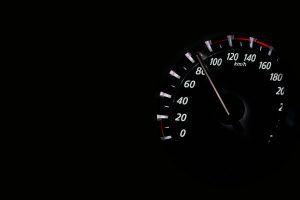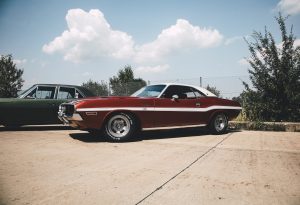Have We Reached the Pinnacle of the 0-60 MPH performance measurement?

There are many ways to measure the performance of a car in the speed department. How fast it can accelerate from 0-60 mph (or 0-100 in km’s), top speed, the way it handles whipping around a corner at a high speed, etc. Throughout the years cars have gotten faster and faster and faster, as well as more technologically advanced and more luxurious. But, there is a category in the speed department that the industry may be reaching its peak now, meaning there is no room left for improvement. That stat is the acceleration from 0-60 mph.


The 0-60 mph stat has not always been the talk of the town, not until around the year 2000 that is. The 1/4 mile has been the crown that performance cars have always, and still is to a point, chased. The muscle car era from around 1950-1980 was all about the quarter mile because those American V8’s had a tough time getting off the line due to weight, but once that horsepower kicked in there was still plenty of time left in the quarter mile. However, now the 0-60 time is just as talked about and used for performance measures as the quarter mile, therefore, manufacturers are making cars lighter with smaller engines, more time spent in wind tunnels for aerodynamics, etc.
The 0-60 mph times cars are putting up now are almost so fast that the limits of physics are beginning to come in play thanks to the time spent on weight saving and distribution, automatic transmissions, etc. It wasn’t long ago that 5 secs was considered an insanely fast time for 0-60 mph, or even breaking the 10 second mark.
A supercar like a Lamborghini Countach in the 90’s sprinted to 60 mph in 4.5 secs; in a damn supercar. There was even a broad amount of time when a 911 struggled to break 4.8 secs; the most iconic sports car of all time. Nowadays, a mid-size family sedan for under $45K, like a Kia Stinger, is doing 4.5 secs; a Kia! There are even a few handfuls of SUV’s, yes SUV’s, doing the sprint to 60 mph in under 4 seconds!
So, if the average everyday grocery getters are that fast, one can only imagine what it feels like to do the 0-60 mph sprint in a supercar or a high end sports car like a M series BMW or Porsche. These high end performers are doing 0-60 mph in under 3.3, and even somee doing it in under 2.8! That’s not too far off from a top fuel dragster type acceleration (around 1 second), in which professional drivers have to wear all kinds of gear and do all kinds of training to prepare themselves physically for the amount of G-forces that are pulled.
So, how is this possible you say, when not too long ago breaking the 10 sec mark was considered fast? Simple, the advancement of technology at a rapid pace combined with knowledge. Horsepower is not even a super crucial piece of the ingredient for 0-60 anymore. It’s about the aerodynamics and weight distribution, amongst other things like throttle response. For example, by simply moving the Corvette’s 480 HP V8 to the mid and re-designing the exterior, Chevrolet was able to improve the 0-60 time by .8 seconds.
While there is still room for advancement for other stats like the 1/4 mile or track time, the 0-60 may have reached its pinnacle. Not only are cars becoming so quick, so quick that it is unsafe, but they also can’t go any faster without the impossibility of defying the laws of physics. It is truly incredible the irony in how quick cars have gotten in the 0-60 sprint in such a short time. Who would have ever thought a 5000 lb station wagon, like the Mercedes E63s AMG Wagon, would have a 0-60 time of 3.0 seconds?

Recent Comments